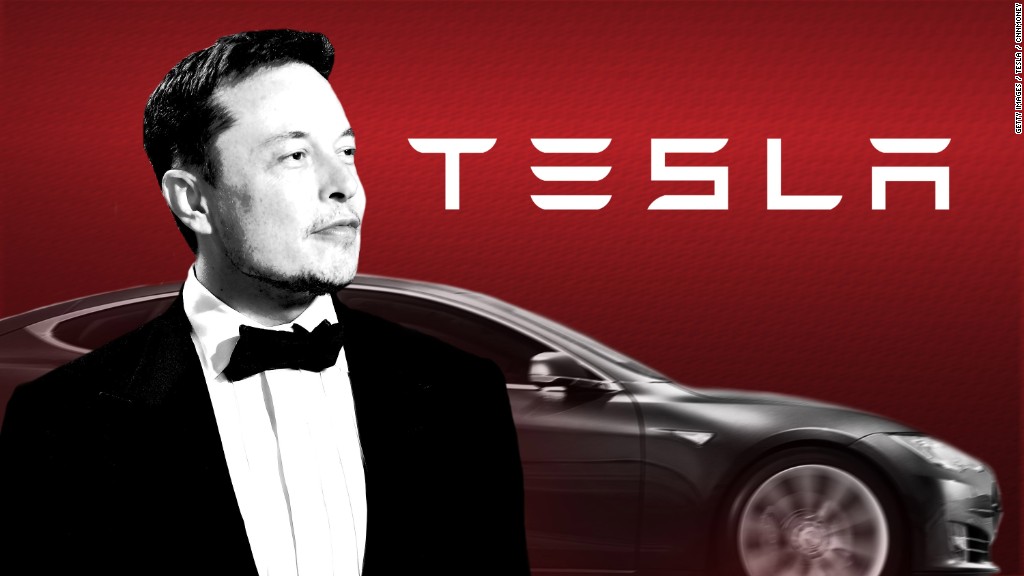
The data protection authority of the Netherlands has recently acknowledged potential data protection breaches by Tesla, the electric vehicle manufacturer headed by Elon Musk.
While the authority has refrained from providing detailed comments at this early stage, concerns have emerged in response to a report by Germany’s Handelsblatt. The report alleges that Tesla has not adequately safeguarded the data of its customers, employees, and business partners. The disclosure of 100 gigabytes of confidential data by a whistleblower was highlighted in the report.
The data protection agency in the Netherlands, where Tesla’s European headquarters is located, has confirmed its awareness of the Handelsblatt report and stated that an investigation is currently underway. However, they have chosen not to disclose whether an official investigation has been initiated, citing agency policy. It has been disclosed that the Dutch agency was informed about the situation by its counterpart in the German state of Brandenburg, where Tesla’s European Giga factory is situated.
According to Handelsblatt, it was reported that Tesla had informed the Dutch authorities about the breach. However, the spokesperson for the data protection agency stated that they were not aware if the company had directly communicated with the agency. Requests for comment regarding the Handelsblatt report from Tesla remain unanswered, leaving their official stance on the matter unknown. The report by Handelsblatt highlighted the presence of customer data, labeled as “Tesla Files,” within a dataset, suggesting a significant amount of customer information was involved.
The data protection office in Brandenburg described the data leak as “massive” and transferred the case to the Dutch authorities. It is the responsibility of the Dutch authorities to take appropriate enforcement actions based on the allegations. Dagmar Hartge, the data protection officer for Brandenburg, emphasized the magnitude of the breach and mentioned that it would be up to the Dutch authorities to determine whether the case should be addressed as part of a European procedure, which typically takes several weeks to resolve.
As reported by Handelsblatt, the leaked files contain a vast amount of information, including over 100,000 names of current and former employees, Tesla CEO Elon Musk’s social security number, private email addresses, phone numbers, employee salaries, customer bank details, and confidential production details. This breach, if confirmed, would constitute a violation of the General Data Protection Regulation (GDPR). The potential consequences for Tesla could include fines of up to 4% of its annual sales, equivalent to approximately 3.26 billion euros.
In response to these revelations, the German union IG Metall expressed concerns and urged Tesla to promptly inform its employees about any data protection violations. They emphasized the importance of fostering a culture within the company where employees feel safe to raise concerns and grievances without fear of retaliation. Dirk Schulze, the incoming district manager for Berlin, Brandenburg, and Saxony, noted that these recent disclosures aligned with the concerns they had been gathering over the past two years.
A lawyer representing Tesla, as quoted by Handelsblatt, stated that the data leak was attributed to a “disgruntled former employee” who had misused their access as a service technician. The company intends to pursue legal action against the individual suspected of being responsible for the leak.
Handelsblatt’s report on the leaked files brings to light numerous customer complaints regarding Tesla’s driver assistance systems, including instances of sudden acceleration and phantom braking. In a separate investigation by Reuters, it was revealed that Tesla employees privately shared intrusive videos and images captured by customers’ car cameras through an internal messaging system between 2019 and 2022.
In a separate incident this week, Meta, the parent company of Facebook, received a record-breaking fine of 1.2 billion euros ($1.3 billion) from the primary European Union privacy regulator. This penalty was imposed due to Meta’s mishandling of user information, and the company has been given a five-month period to cease transferring user data to the United States.
As the investigation into Tesla’s data protection practices continues, concerns regarding privacy and security take center stage once again. This incident serves as a reminder of the intensified scrutiny faced by technology companies concerning the protection of sensitive information.
The allegations against Tesla highlight the difficulties companies encounter in maintaining data privacy, especially as customer data becomes an increasingly valuable asset. The leaked files containing personal and confidential information underscore the potential risks associated with data breaches, including identity theft, fraud, and compromised privacy.
The General Data Protection Regulation (GDPR), enforced by the European Union, places strict obligations on companies to safeguard personal data and imposes severe penalties for non-compliance. If the alleged violation is proven, Tesla could face substantial fines that could significantly impact its financial standing.
This incident also raises concerns about the wider implications for data protection in the automotive industry. As vehicles become more connected and reliant on data, ensuring the security and privacy of customer information becomes of paramount importance. Customers entrust automakers with their personal data, including location information, driving habits, and even biometric data, necessitating robust safeguards against unauthorized access and breaches.
Furthermore, this data leak comes at a time when the public is increasingly concerned about privacy and the handling of personal information by technology companies. It highlights the significance of transparency, accountability, and proactive measures to protect user data. Companies must prioritize data protection and take immediate action to address vulnerabilities and enhance security measures.
Following the revelations, Tesla is anticipated to face growing pressure from regulatory authorities, customers, and stakeholders to promptly address the data protection concerns. The company’s handling of the situation and its commitment to rectify any deficiencies will be subject to close scrutiny.
The impact of this incident extends beyond Tesla itself. It serves as a wake-up call for other tech industry companies, underscoring the critical importance of prioritizing data protection and implementing robust security measures. As digital transformation continues to reshape various sectors, safeguarding the privacy and security of customer data must be a top priority in corporate strategies.
The outcome of the investigation conducted by the Dutch data protection watchdog will provide further insights into the alleged breaches and determine the appropriate actions to be taken. Stakeholders will closely monitor the developments in this case, as it could have significant implications for Tesla and the broader technology industry’s approach to data protection.
In an era where data breaches and privacy infringements have become increasingly prevalent, restoring trust in the handling of personal information remains a crucial task for companies. The Tesla incident serves as a stark reminder that data protection is not merely a legal requirement but also a fundamental aspect of maintaining customers’ confidence and loyalty in an increasingly data-driven world.



